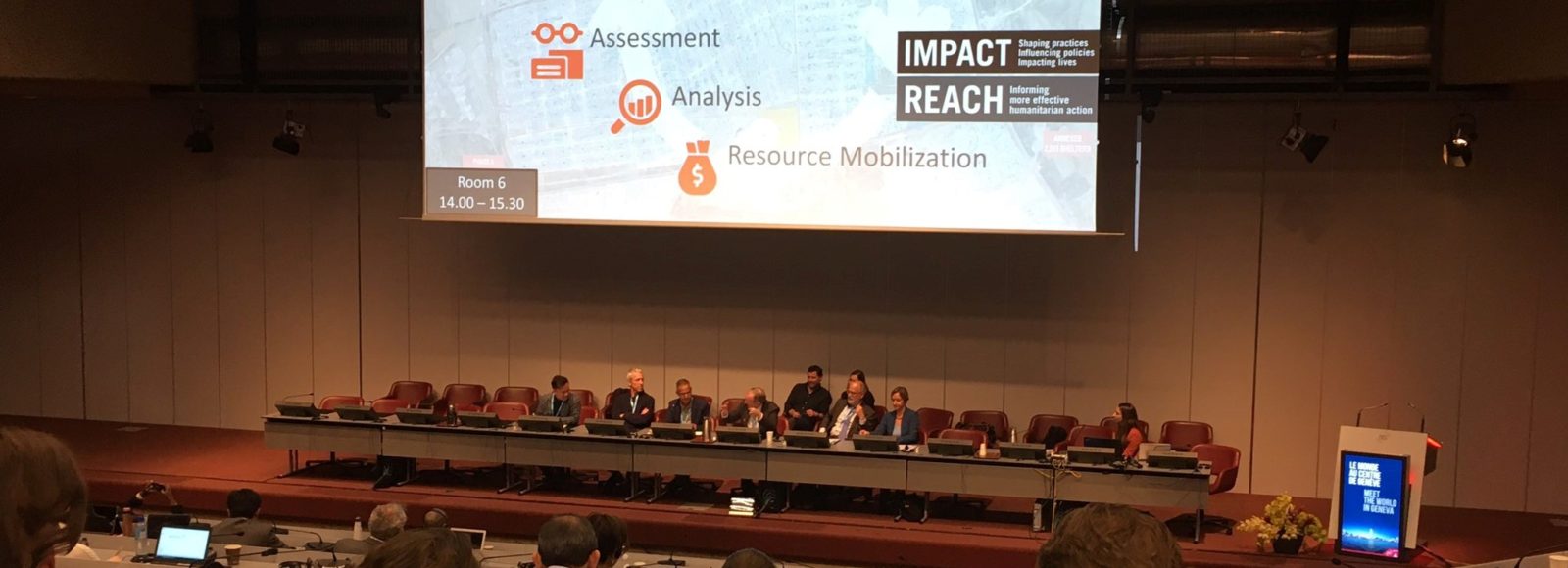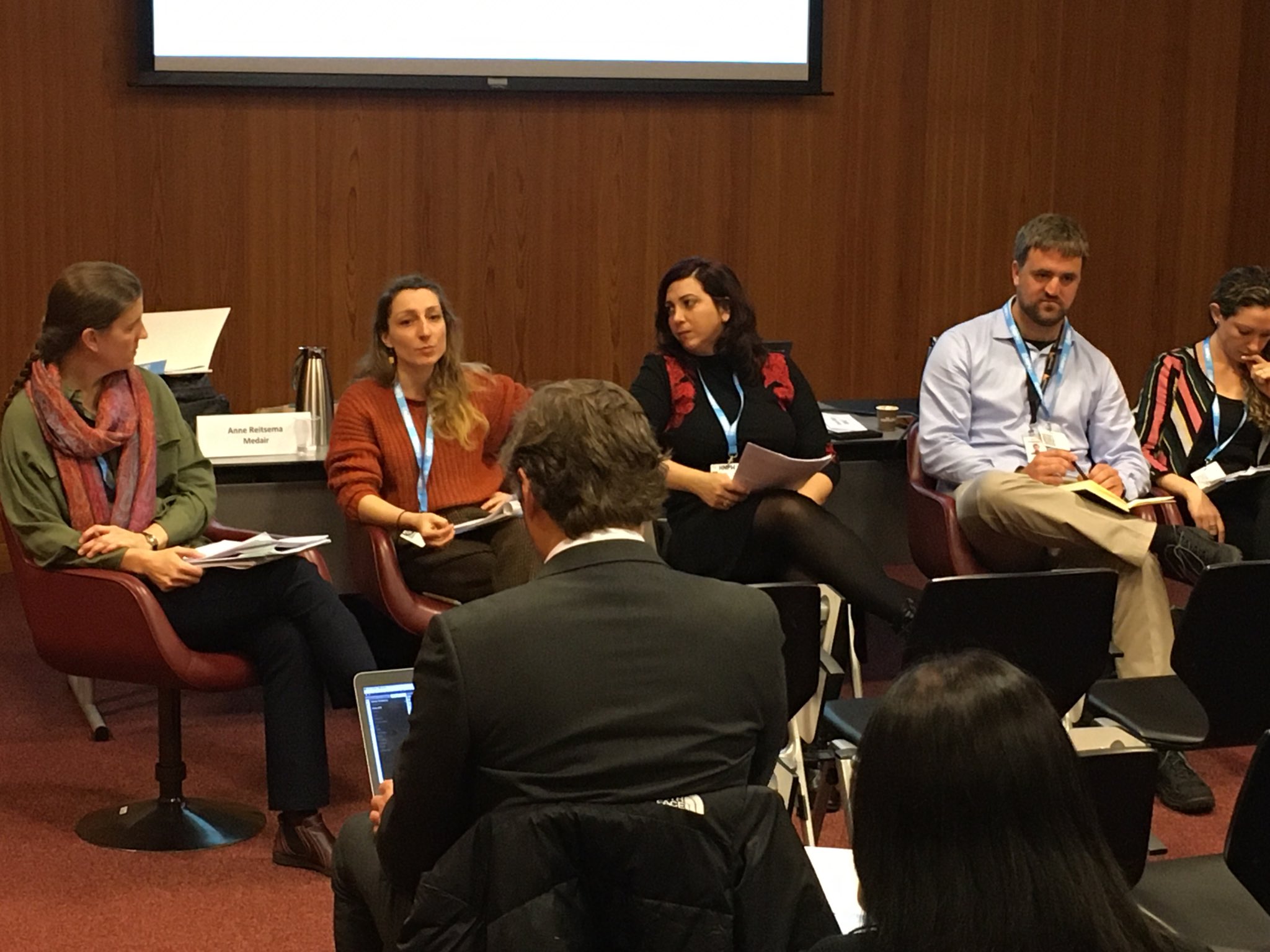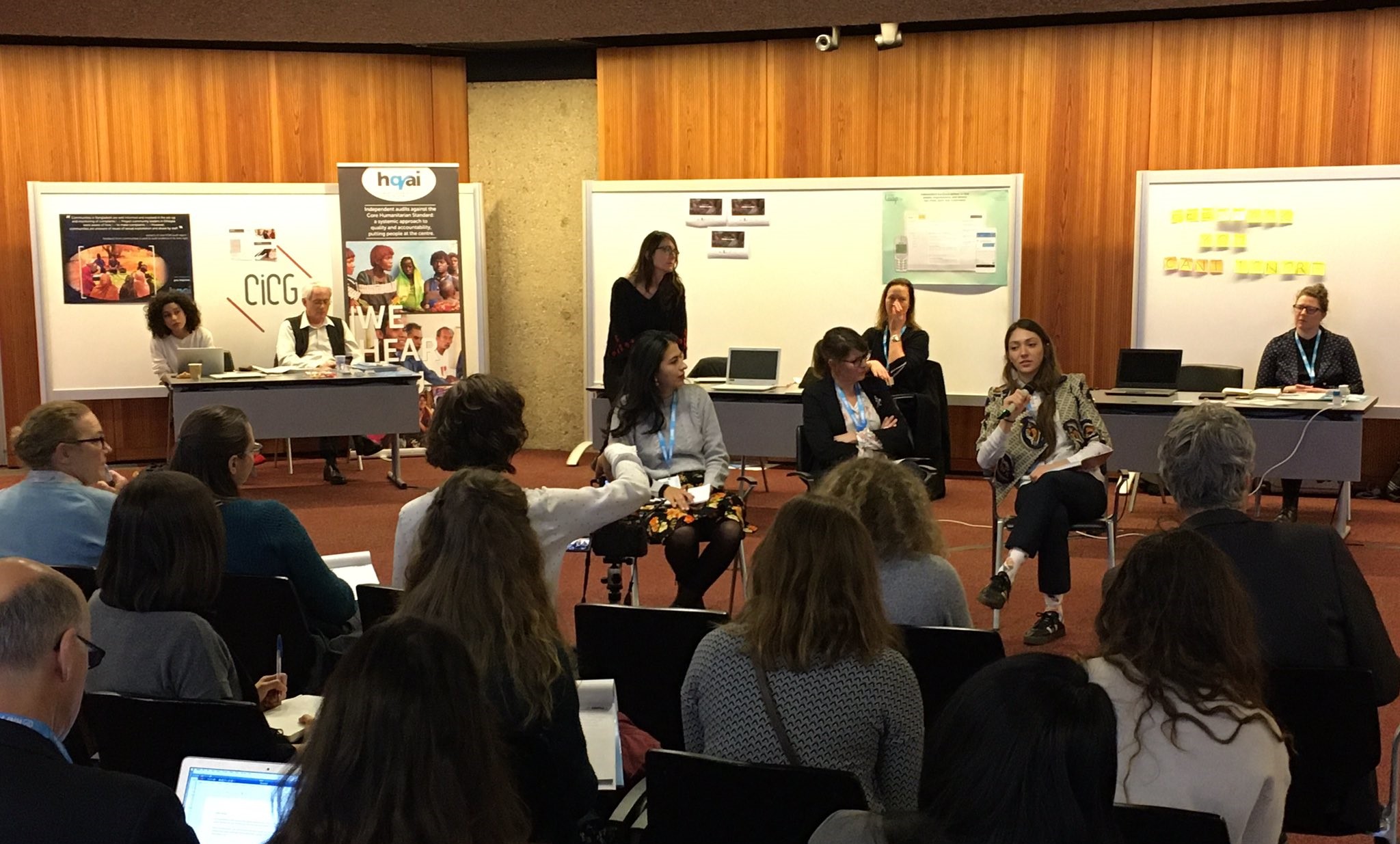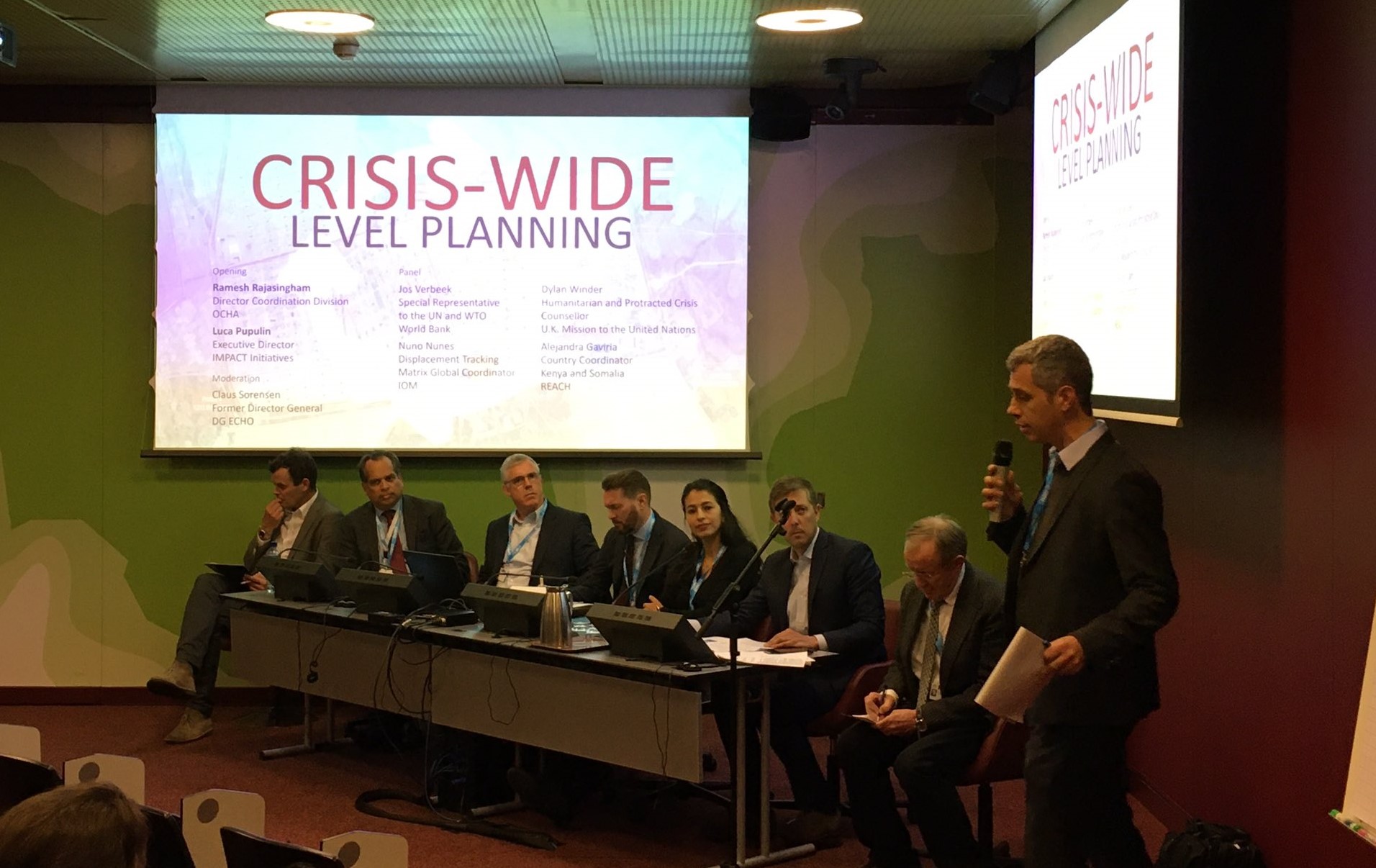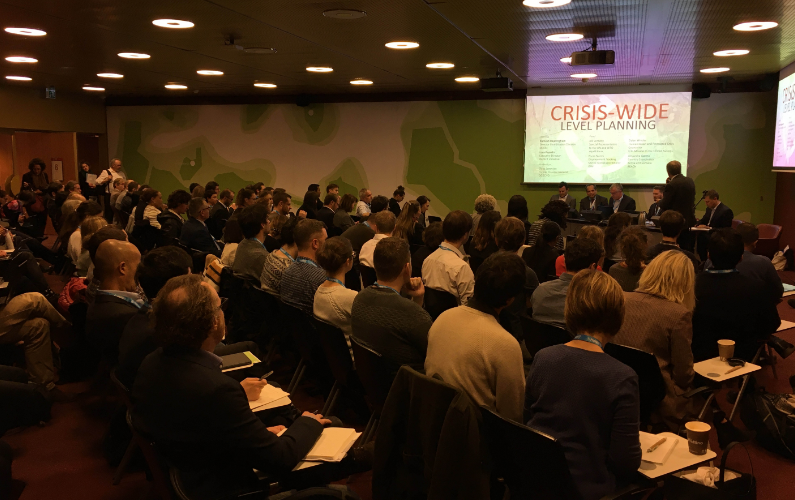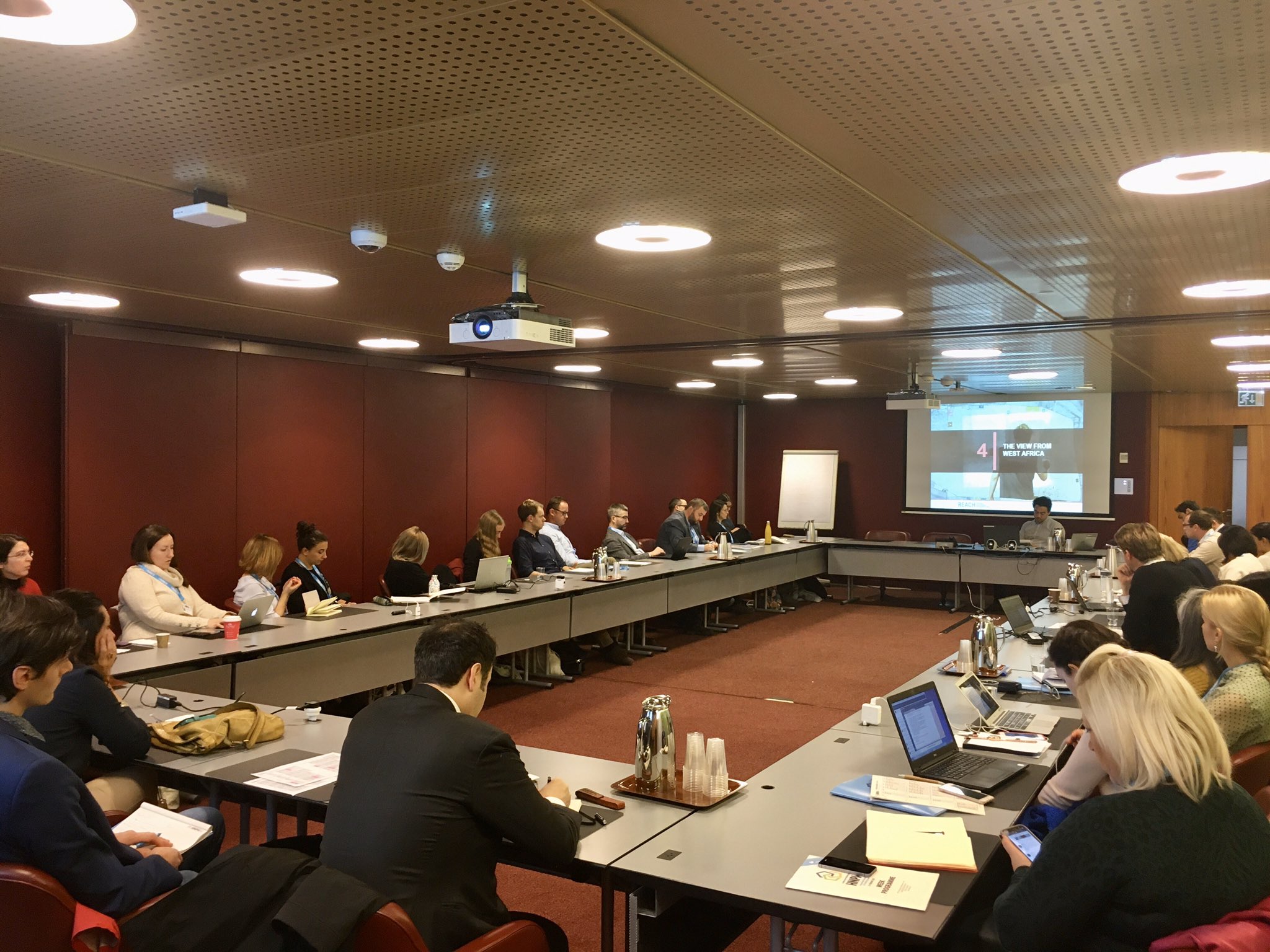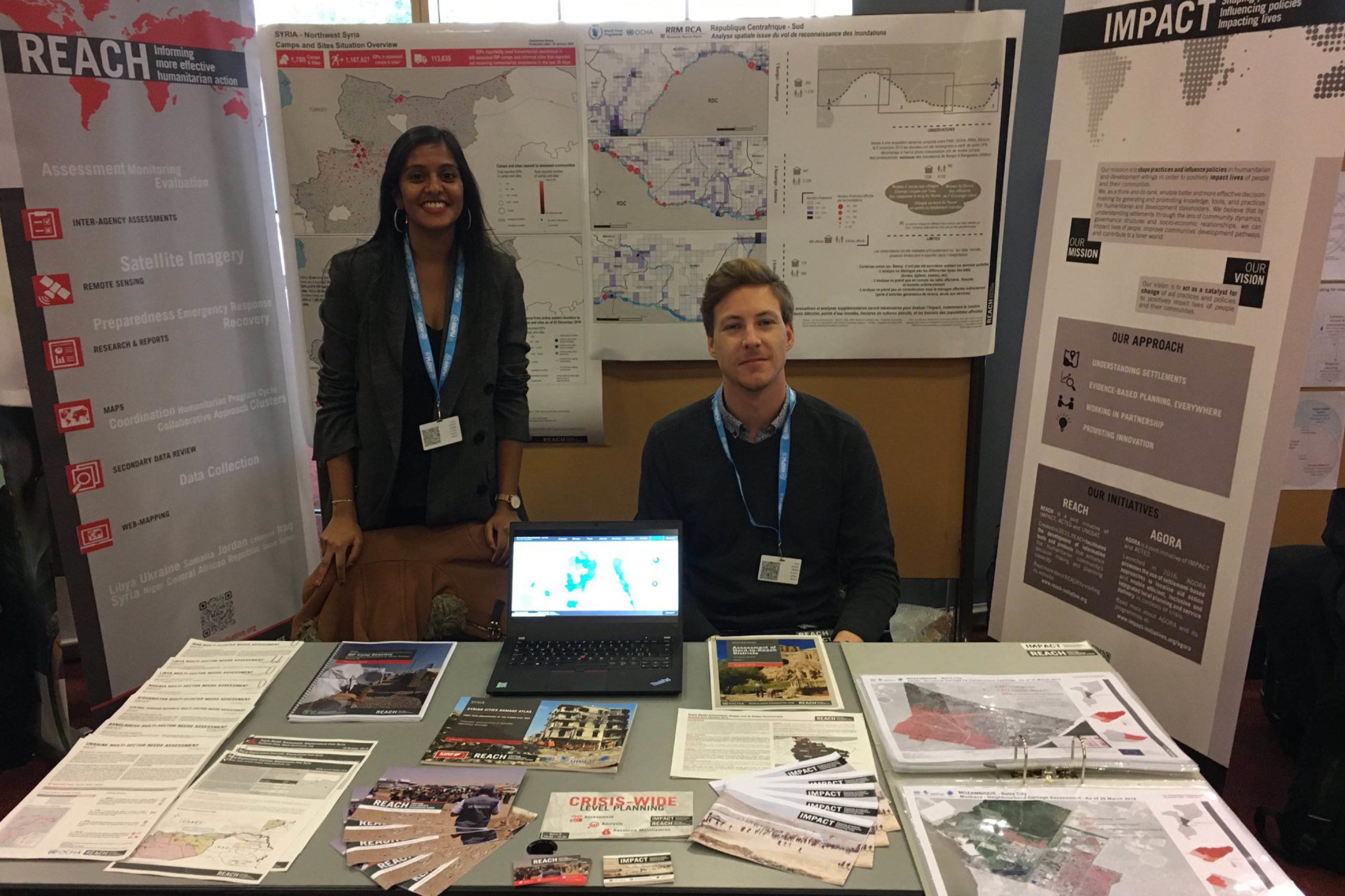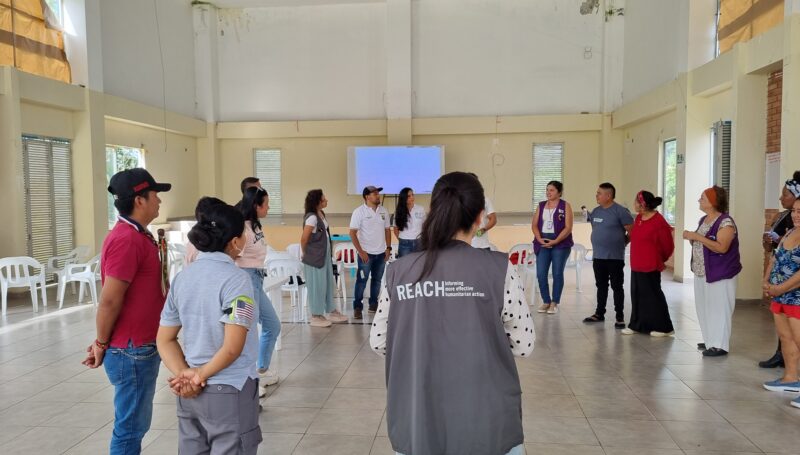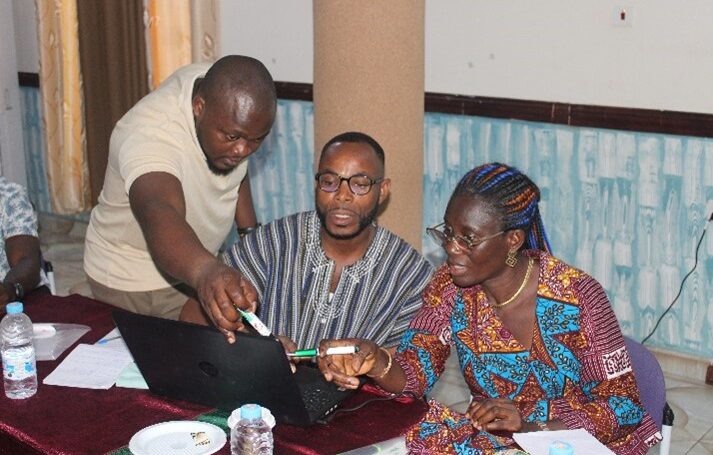IMPACT Initiatives participated in the Humanitarian Networks and Partnerships Week (HNPW) which took place in Geneva. It was an opportunity for key players of the humanitarian and development sector to exchange views on multiple topical issues affecting the humanitarian sector. Here are the key takeaways from the IMPACT/REACH participation to sessions, panels, technical meetings and the marketplace.
“Adaptive Management through context readiness”
Louise Thaller, IMPACT Area-Based Assessment and Response Specialist, contributed to a session on “Adaptive Management through context readiness” hosted by World Vision.
Here are some key takeaways that were pronounced during the talk:
- Area based approaches pave the way for localized intervention strategies that are owned by everybody
- When INGOs engage local communities and authorities from project conception stage, interventions modalities and better able to adapt to context changes
- Area based approaches are a great instrument for strengthening local capacities for service delivery
During the panel, Louise discussed the added value that area-based assessments provide in terms of shared understanding of a given context that truly captures local specificities- building on her recent experience from the work done in Niger with the AGORA initiative.
Louise Thaller from IMPACT talking to the panel and audience
“Exhibition on Accountability to Affected Populations”
“Exhibition on Accountability to Affected Populations”at HNPW event
REACH Country Coordinator for Somalia and Kenya, Alejandra Gaviria, was at the H2H exhibition on Accountability to Affected Populations where she delivered opening remarks on this increasingly important component of humanitarian response. In so doing, Alejandra presented the work done on AAP by her team in Somalia, who pioneered efforts there to give affected populations a direct voice in humanitarian programming and also provided communities with innovative feedback mechanisms as showcased by her project with Africa’s Voices Foundation. Alejandra specifically reiterated to actors present at the exhibit the continued need for better communication and improved feedback mechanisms with affected populations- not only as a way to increase our accountability but also as a tool for improving humanitarian response in itself.
“Crisis-wide level planning”
“Crisis-Wide Level Planning” session with the panelist at HNPW event
The high level panel exchanged and debated on the future of the use of reliable information and data in humanitarian programming and the discussion juggled their respective perspectives. Here are some of the most important quotes that were heard from our panellists:
During this session, Alejandra Gaviria particularly emphasized the importance of the data collection process in order to be able to carry out quality Multi-Sectoral Needs Assessments (MSNA) in order to have a better response of needs of people affected by humanitarian crises.
In light of the sensitivity affecting the world of data analysis, the REACH country coordinator as well as Nuno Nunes, the head of IOM / DTM, reiterated their total adherence to the security principles aimed at protecting the beneficiaries of humanitarian aid .
“Supporting cash-based programming globally”
Although the humanitarian community has a wide range of reliable evidence on cash allocations, the cash-based response provided is not systematically based on this evidence. How to overcome this barrier and ensure a better response for the beneficiaries?
Here were some elements of answers brought by REACH and CaLP:
- Under-resourcing creates coordination challenges
- Humanitarian politics hinder data uptake
- Localisation is rarely implemented or discussed.
“Supporting cash-based programming globally” session at HNPW event
“Workshop on the Lessons Learned from the 2019 editions of the Multi-Sector Needs Assessments”
The workshop was led by the IMPACT Head of Research, Ms. Lis Vikman, accompanied by an array of specialists and REACH coordinators who came directly from the 22 countries in which IMPACT and REACH operate. The session on “Building a multi-sector index” was opened to all those who wanted to learn more about the “MSNA”, a flagship methodology used to inform the HNO of 10 countries affected by the crisis.
Here are the main takeaways from the workshop:
- Apart from a few global standardized indicators, most of the MSNA indicators were tweaked to fit their respective crisis context, which severely limits the possibility to compare between crisis
- To identify the most robust approach of aggregating / building an index, we will first need some core indicators that are standardized across the MSNAs, which can then be used to test the different aggregation approaches.
IMPACT/REACH booth
In parallel with the various conferences that we delivered and participated in at the HNPW, our team had the pleasure to meet you at the IMPACT/REACH kiosk all week to answer your questions and show you the work that shaped more effective humanitarian action in 2019. Thank you again to everyone who came to see us.
 Our communication team was pleased to stay all week to answer your questions and show you the work that has shaped more effective humanitarian action in 2019.
Our communication team was pleased to stay all week to answer your questions and show you the work that has shaped more effective humanitarian action in 2019.
For more information
Learn more about REACH
Interested in the team? Apply online.
For questions, or media requests, feel free to contact:
Emmanuel Gamard, Communications Officer, [email protected]
Cynthia Somasundaram, Communication & Graphic Design Intern, [email protected]
Heading picture : HNPW 2020





